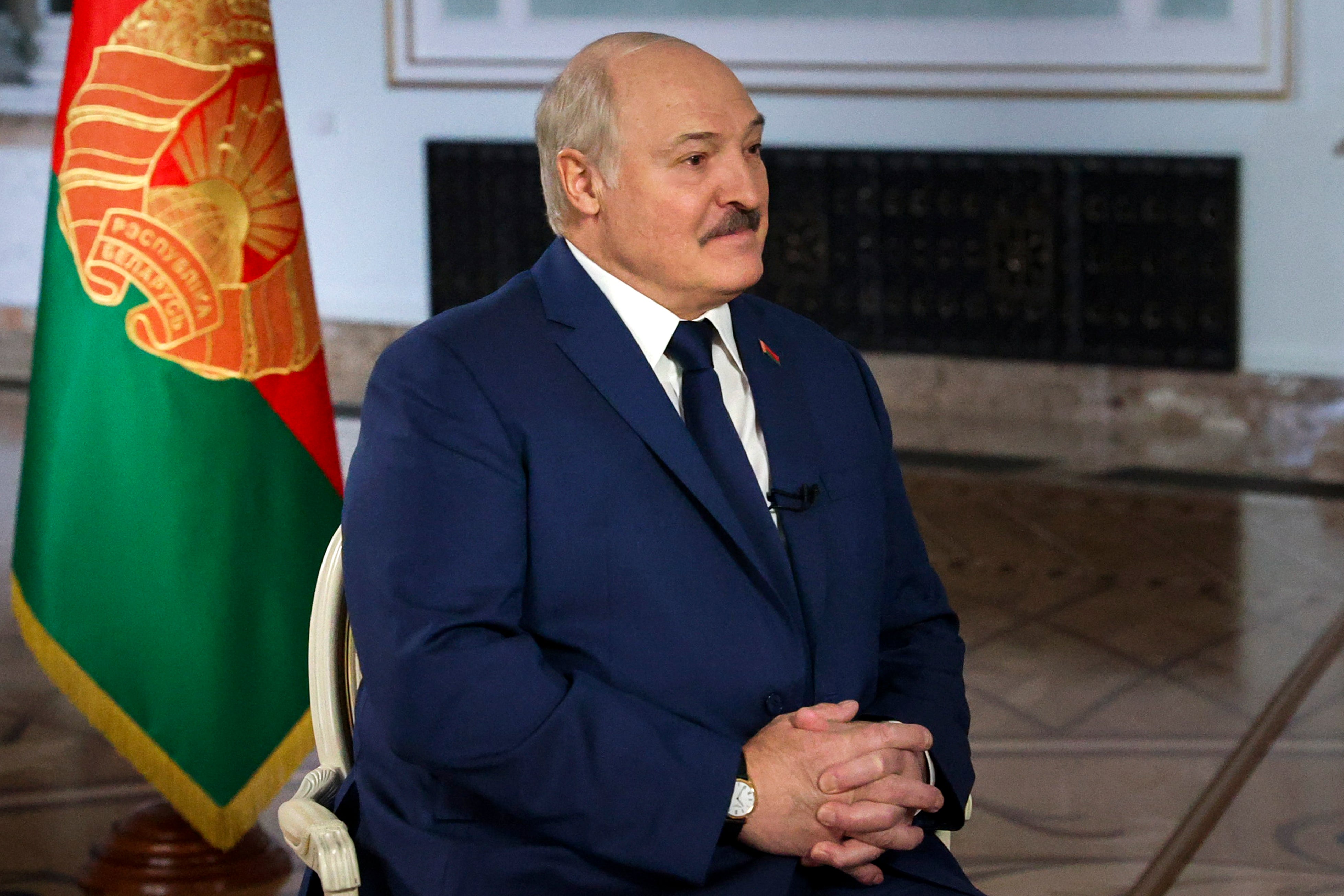President of Belarus offers to host Russian nuclear weapons
The longtime president of Belarus says his country would be ready to host Russian nuclear weapons if NATO moves U.S. atomic bombs from Germany to Eastern Europe

Your support helps us to tell the story
From reproductive rights to climate change to Big Tech, The Independent is on the ground when the story is developing. Whether it's investigating the financials of Elon Musk's pro-Trump PAC or producing our latest documentary, 'The A Word', which shines a light on the American women fighting for reproductive rights, we know how important it is to parse out the facts from the messaging.
At such a critical moment in US history, we need reporters on the ground. Your donation allows us to keep sending journalists to speak to both sides of the story.
The Independent is trusted by Americans across the entire political spectrum. And unlike many other quality news outlets, we choose not to lock Americans out of our reporting and analysis with paywalls. We believe quality journalism should be available to everyone, paid for by those who can afford it.
Your support makes all the difference.The longtime president of Belarus said Tuesday that his country would be ready to host Russian nuclear weapons if NATO moves U.S. atomic bombs from Germany to Eastern Europe.
In an interview, President Alexander Lukashenko also said for the first time that he recognizes the Crimean Peninsula as part of Russia and plans to visit it soon. Russia annexed Crimea from Ukraine in 2014, a move that the West regards as illegal.
Lukashenko made the remarks as he moves to cement ties with Russia, his main ally and sponsor, amid tensions with the West over his disputed reelection last year and a crackdown on dissent in Belarus.
Asked about the possible redeployment of U.S. atomic bombs to Eastern Europe if Germany's new government were no longer willing to house the weapons, Lukashenko responded that he would invite Russian President Vladimir Putin to send nuclear weapons that were withdrawn after the 1991 Soviet collapse back to Belarus.
“I would offer Putin to return nuclear weapons to Belarus,” Lukashenko said in the interview with Dmitry Kiselyov, the head of Russian state media group Rossiya Segodnya.
The Belarusian leader wouldn't elaborate on what kind of weapons Belarus would be willing to accommodate, saying that it would host the ones that would be “the most efficient.” He added that Belarus has carefully preserved the necessary military infrastructure dating back to the Soviet era.
Speaking earlier this month, NATO Secretary General Jens Stoltenberg said the Western military alliance would need to ponder redeploying nuclear weapons east if the new German government changes the country's policy on nuclear sharing.
“Germany can, of course, decide whether there will be nuclear weapons in your country, but the alternative is that we easily end up with nuclear weapons in other countries in Europe, also to the east of Germany,” Stoltenberg said.
Lukashenko has edged closer to Russia since he received Western pressure over his election to a sixth term in an August 2020 vote that the opposition and the West rejected as rigged. Belarusian authorities responded to protests triggered by the election with a sweeping crackdown, prompting the European Union and the United States to slap Belarus with several rounds of sanctions.
Tensions have escalated further since the summer over the arrival of thousands of migrants and refugees on Belarus' border with EU member Poland.
The European Union has accused Lukashenko of retaliating for its sanctions by using desperate asylum-seekers as pawns and tricking them into trying to enter Poland, Lithuania and Latvia to destabilize the entire EU.
Belarusian authorities have denied the accusations and accused the EU of failing to offer safe passage to migrants and refugees. Since Nov. 8, a large group of people, mostly Iraqi Kurds, has been stranded in Belarus at a border crossing with Poland as forces from the two countries face off.
Most of the the people stuck in freezing temperatures are fleeing conflict or hopelessness at home, and aim to reach Germany or other Western European countries.
Lukashenko sought to turn the tables on the West and cast the tensions over migration as part of a purported Western plot against Belarus and Russia.
Russia and Belarus have a union agreement that envisages close political, economic and military ties, but Lukashenko in the past has sought to maneuver between Moscow and the West, trying to win concessions from each party.
And even though he relied on cheap energy and loans provided by Russia, he refrained from recognizing Moscow's annexation of Crimea until Tuesday. In Tuesday's interview, he said he considers Crimea part of Russia both de facto and de jure. Lukashenko added that he planned to visit Crimea on Putin's invitation.
“If the president comes there with the president of Russia, what other form of recognition could there be?" he said.
Ukrainian and Western authorities have raised concern in recent days about alleged Kremlin plans to invade Ukraine. Lukashenko warned that his country would stand squarely behind Russia if the Ukrainian government launched an offensive against Moscow-backed rebels in eastern Ukraine.
__
Yuras Karmanau in Kyiv, Ukraine contributed to this report.
___
Follow AP's coverage of Belarus at https://apnews.com/hub/belarus